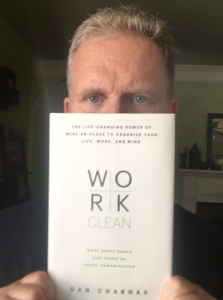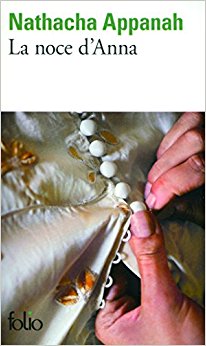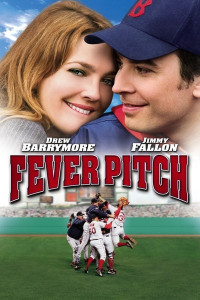
Work Clean by Dan Charnas
I picked this up at the local library. I have to say right away that Dan Charnas is a journalist, not a chef. So I was a bit skeptical that Mr. Charnas had a real insight into the “mise-en-place”, but I gave it a chance because he based his book and advice on interviews with many chefs.
I have worked to develop my own “mise-en-place” philosophy over the years, since I was first introduced to the idea in culinary school. “Mise-en-place” is the classic French culinary term for – “everything in place”. It means having all your components prepared, in order, and close at hand. It is the fundamental organization process of chefs. “Working clean” is one of the 10 commandments of mise-en-place.
I found that it not only works in the kitchen, but if applied properly, it is a great tool for life outside the kitchen as well. While I’ve always seen articles about using mise-en-place in the kitchen, but never outside, so I was intrigued by Charnas’ theme.
First, Charnas extols the value of mise-en-place and the power of working clean. He creates scenarios where people who don’t organize their work space or their lives suffer from continuing failure and disappointment. Work Clean then concentrates on 10 principles of mise-en-place as used by chefs and then describes ways people outside the culinary industry can use these principles to improve their own lives. This is done vignettes of chefs on the line, a situation, and how working clean kept them out of the weeds. Finally he describes a Work Clean System and what a day of working clean looks like. Prime takeaways are the value of self-discipline, focus, planning, time-management,
I wouldn’t say there was anything new to me in this book. That didn’t make it boring, I found myself nodding in recognition not only of the things I do but also the things I should do more frequently to make my job – and my life – easier. I don’t think all the lessons of mise-en-place make sense in every industry. But some definitely do. What I have noticed is that lots of people act either on impulse or from routine without considering whether the routine even serves them anymore. They also react to situations without a plan. Working clean puts you on top of the chaos instead of under it. That is not to say all hell won’t break loose on you. But being organized, having everything in place, and having a system that goes on even during a crisis makes unexpected situations easier to manage.
I would say the Work Clean is a good book to read if you are looking for a practical set of organizational practices. Once that is accomplished even a good chef would be advised to take the next steps towards absorbing lessons from Getting Things Done and principles of minimizing.
Chef Jack’s top mise-en-place tips:
- Plan first – This is the critical, and often overlooked, step. So much of today’s entrepreneurial advice is based on leap first. Even before culinary I learned the 5P’s – Proper Planning Prevents Poor Performance. And there is lots of evidence to suggest that proper planning and sessions of visualizing a task before undertaking it helps a person actually perform that task much more efficiently. So get out that notepad, calendar, dry-erase, or whatever and get to planning. A by-law in the kitchen, from ordering supplies to stacking dishes to be washed, is always that a failing to plan is planning to fail.
- Watch the clock – Time is half of cooking. Plain and simple. Learn to manage time, you have 50% of what you need to be a great chef. And remaining conscious of time (how much has elapsed, what a “minute” actually is, the final grains in the hour glass) makes it possible to get things done. The clock is the enemy of culinary. Time will be upon us before we know it. Make good use of your time and be aware that you are making good use. As quickly as you think you can complete a task, I promise that with attention to time, you can be faster. No matter what your area of expertise, making good use of your time feels good.
- Keep it simple – Complication invites error. It’s just a fact of the Universe. Complication slows things down. Complication distracts from the central message. A piece of fish is a clean, flavorful, nuanced thing. Piled high with butter sauce and minced peppers and branches of herbs and aioli and edible flowers it becomes a complicated mess. The same goes for tools. I have massively trimmed down my gadget list since I was a culinary newb. I find that I need far fewer knives, pots, strainers, etc. And keeping things simple helps unclutter the drawer, the desk, the email inbox, the closet, and most importantly – the brain. Complexity can be found in simplicity, but the simpler you keep a recipe or a shopping list or a trip to Hawaii, the more effectively you are going to be able to operate.
- Work clean – Another by-law in the kitchen is “clean as you go”. It can be one of the hardest lessons to learn, but once learned creates an oasis for you in a sea of turmoil. Clean as you go is about finishing up and not leaving loose ends. When you are done with an ingredient, you put it away. You keep your counter space neat, organized, and clean. You keep your head space neat, organized, and clean. Working clean calms you down, it prevents missteps or mistakes, and it enables you to work faster. Plus, it dramatically cuts down on the mountain of work left over at the end of the day. Leaving a room? Turn off the light; that’s working clean. Use the last of the toilet paper? Refill; that’s working clean. Making dinner for family and friends? Once that chicken goes in the oven, clean the counter top, put everything away that is not being used, and get some dishwater in the sink; that is working clean. You will buy your self time, reduce stress, and make fewer mistakes.
- Practice perfect technique – I have always told culinary newbs (“new jackets” we call them) to basically screw recipes. Various kitchens have various recipes and some hold to them hard and fast and some are internet downloads that are basically organized suggestions. Following a recipe will never make anyone a chef. I tell them to learn and perfect their techniques. Cutting techniques, cooking techniques, serving techniques – these are the tool a chef needs more than a thick book or digital file of recipes. Learning culinary techniques and the power they possess is like learning jujitsu or karate. With proper technique you can handle yourself in almost any situation. Give me a chef with decent knife skills over one who has 100 different recipes for Chicken Piccata on his Iphone any day. Give me a chef who knows and understands the difference between braising and broiling, or roasting and baking, or frying and sauteeing, and I promise they will deliver a better dish time after time than someone who slavishly follows a recipe. Learn how to do the fundamental of your job the best you can, and you will be a star in your industry.
Work Clean – The life-changing power of mise-en-place to organize your life, work, and mind, by Dan Charnas
Share this:- More





